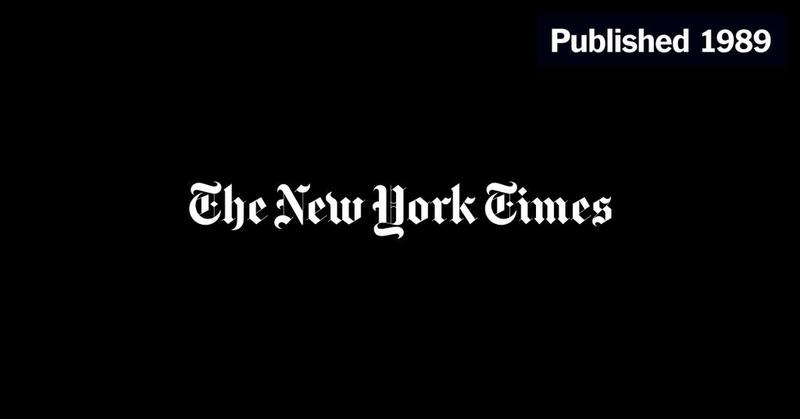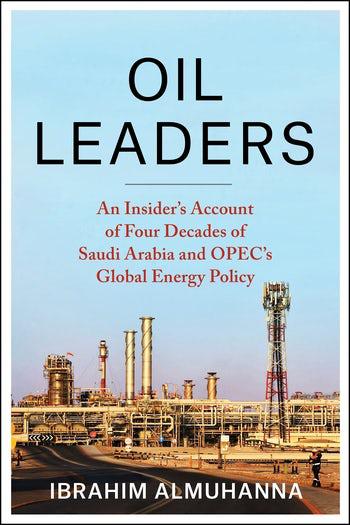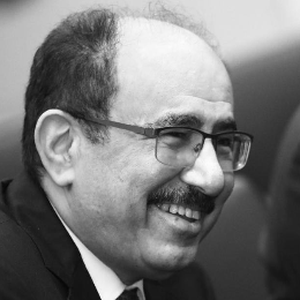
Biography
Energy consultant, author, and a former advisor to four distinguished Saudi energy ministers who is frequently referred to as the "Gulf Source".
Dr. Ibrahim Abdulaziz AlMuhanna is an energy consultant, the author of Oil Leaders: An Insider’s Account of Four Decades of Saudi Arabia and OPEC’s Global Energy Policy (May 2022), and is engaged in multiple academic and business activities.
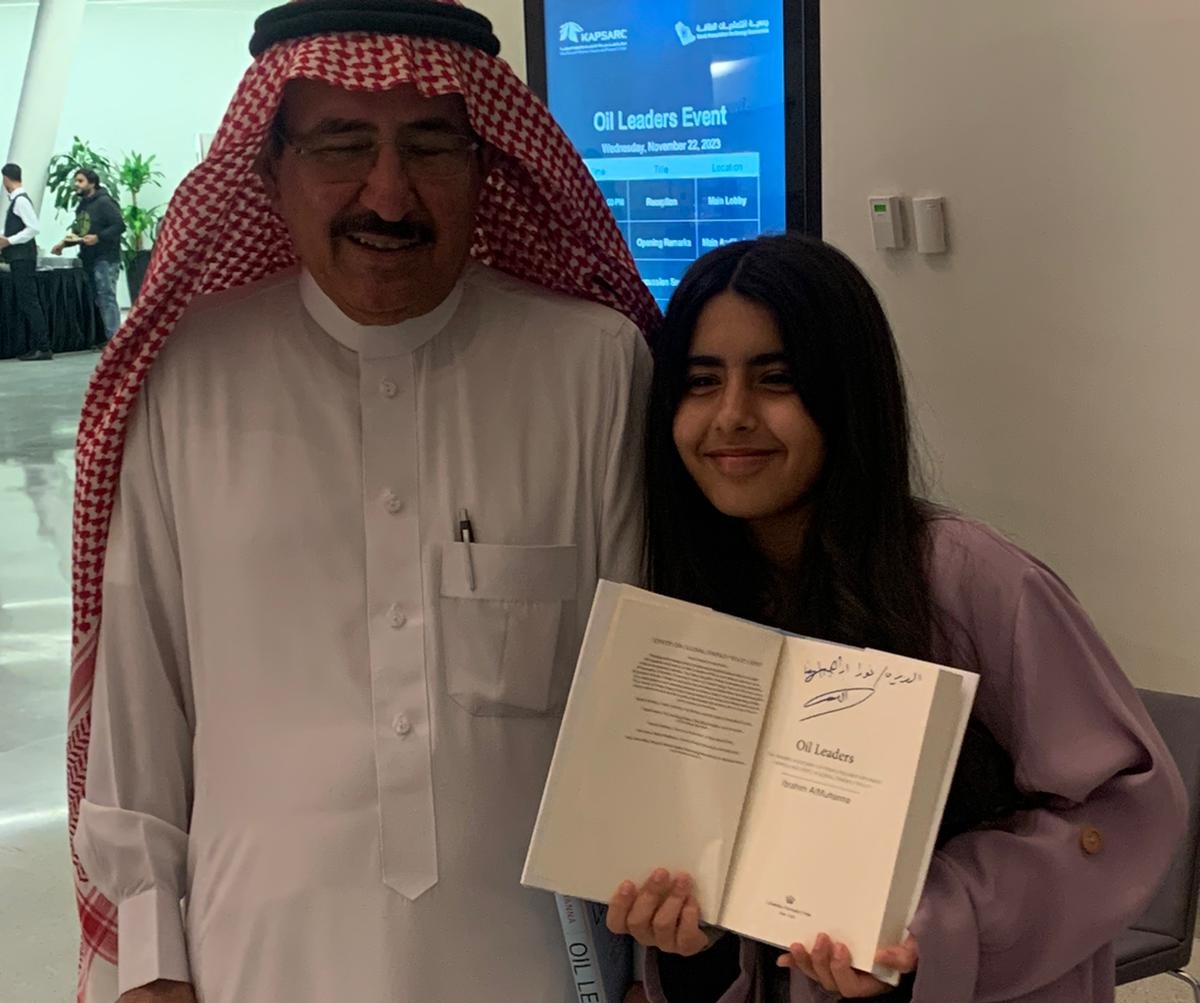
Throughout his career, Dr. AlMuhanna served under four distinguished Saudi energy ministers – Hisham Nazer, Ali al Naimi, Khalid al-Falih, and Prince Abdulaziz bin Salman – offering them advice, input, and analyses on media and public relations, policymaking, OPEC and OPEC Plus affairs, and other issues that pertain to the oil market.
Known as the “Gulf Source”, Dr. AlMuhanna was frequently interviewed and quoted by news outlets like Bloomberg, the Financial Times, Reuters, CNN, CNBC, and others, and his comments about major oil market events regularly made international headlines.
His latest book, Oil Leaders, discusses how the personalities of decision makers, ranging from energy ministers to heads of state, have influenced major oil market decisions and outcomes over the last four decades, a subject that has not been analyzed before. More specifically, the book gives the readers a behind-the-scenes glimpse and analyzes the personalities of decision makers from an insider’s viewpoint. The book is getting a lot of attention. Bloomberg and the Financial Times, among others, have written extensive reviews, and it’s been praised by highly-distinguished people in academia, journalists, analysts, and more.
With all that being said, Dr. AlMuhanna’s career had very humble beginnings. Having grown up in the small village of al Dakhla, Sudair, Saudi Arabia during the 1950s and 60s, Dr. AlMuhanna spent much of his pre-adolescent life without access to electricity or running water.
A Modest Start
The 1970 and ‘80s: From a Saudi Village to the Rural American Midwest
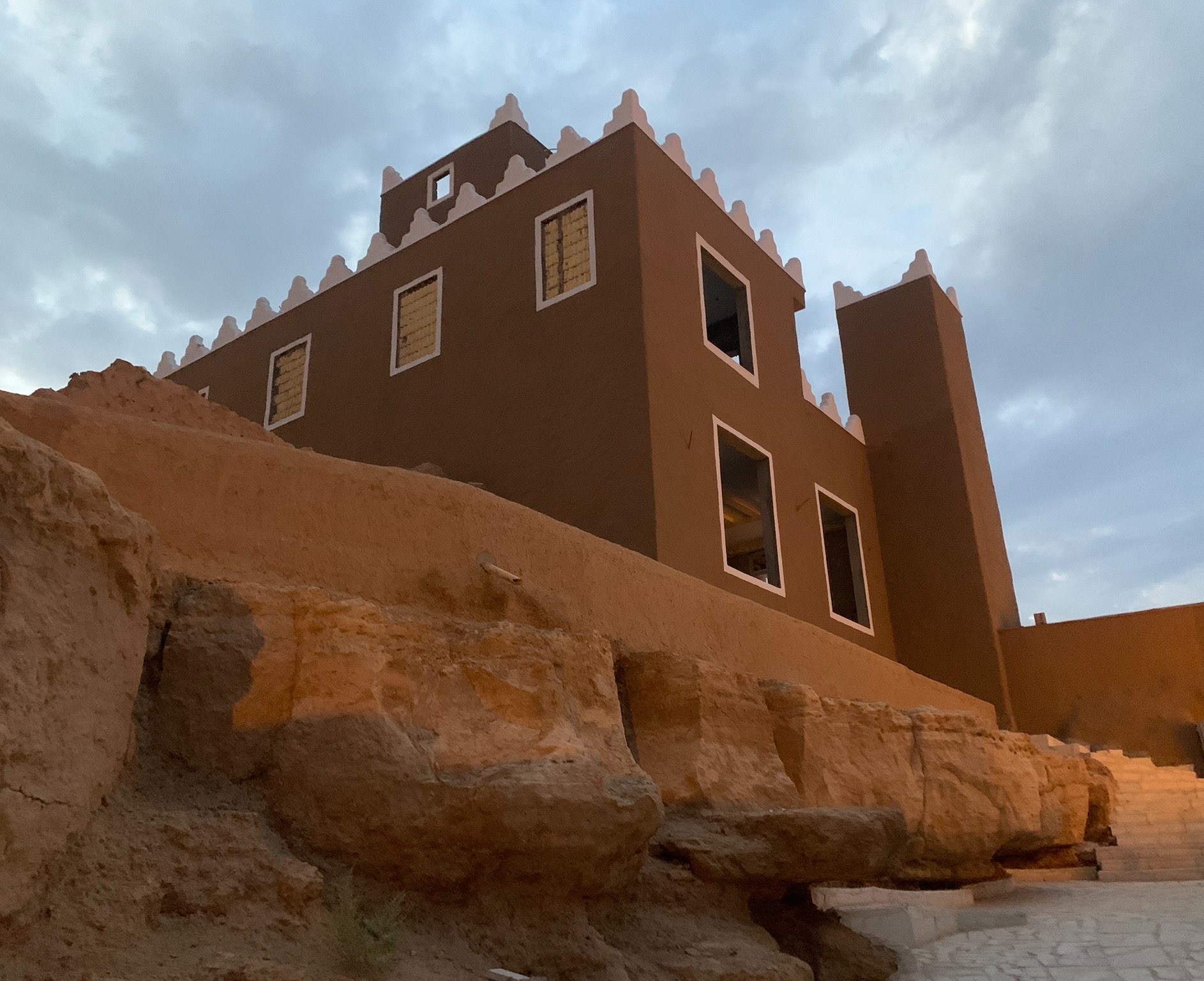
In 1972, Dr. AlMuhanna enrolled in King Saud University (KSU) in Riyadh. Upon earning his bachelor’s degree, KSU sent him to the U.S. to pursue his graduate studies.
First, he had to learn the English language, and there was no better place to do so than the U.S. Midwest. After that, he worked towards a master’s degree in journalism at Southern Illinois University, Carbondale.
In 1982, he started his doctoral education at the American University in Washington, D.C. During the four years and two months that he spent there, Dr. AlMuhanna worked on many studies and journal reports (both individually and jointly with others, including a UNESCO study that he assisted with conducting) and participated in various academic conferences, alongside co-founding the Arab International Studies Association that focused on academics and research (in Arabic) about international politics and being the first editor-in-chief of their professional publications (the Arab Journal of International Studies).
In 1987, he obtained his PhD. His doctoral dissertation, titled “The World System in Transition: Information, Technology, and Transnational Banking”, was a pioneering contribution to its subject and one of the newest major studies about it at that time.

Next, Dr. AlMuhanna returned to Saudi Arabia to become a professor at King Saud University. He continued writing for several major Arabic news publications.
Joining the Ministry
In 1988, Dr. AlMuhanna’s career at the Saudi Ministry of Energy (known as the Ministry of Petroleum and Mineral Resources at that time) began. Perhaps the most noteworthy event in Dr. AlMuhanna’s early career was when he organized the activities program of an important international journalist, Youssef Ibrahim, who was visiting Saudi Arabia. During his trip, the reporter wrote an article that appeared on the front page of the New York Times titled Shaping a New Saudi Arabia: Oil, Peace and a Steady Hand.
The story was about the social and economic development of Saudi Arabia, and it started by highlighting the massive modernization that Dr. AlMuhanna’s hometown of al-Dakhla, Sudair underwent during the 1970s and 80s, providing a micro example of the at-large transformation that Saudi Arabia witnessed at that time.
The New York Times interviewed him, as well, and his photograph appeared in the publication. Later, the Wall Street Journal published a similar story about the topic, alongside other news outlets.
In 1989, he also started working for the ministry on a full-time basis.
The 1990s: Building Domestic and International Foundations
The Iraqi Invasion of Kuwait
When Iraq, led by Saddam Hussein, invaded Kuwait in the summer of 1990, Dr. AlMuhanna was on vacation in London, England. However, he was asked by then-Minister Hisham Nazer and his then-distinguished advisor Prince Abdulaziz bin Salman (the current energy minister) to stay in the United Kingdom’s capital during the initial parts of the invasion to oversee the following responsibilities:
- Directly communicate with the international media to explain Saudi Arabia’s petroleum-policy positions and rebuke criticisms from other countries within OPEC and beyond.
- Coordinated with relevant officials from other countries, especially the U.S. Energy and State Departments, on media messaging and exchanging information, with a major goal of keeping the oil market as stable as possible.
Global and Local Highlights
Apart from the responsibilities that he oversaw during the Iraqi invasion of Kuwait, here are a few of Dr. AlMuhanna’s other professional highlights during his early career in the 1990s:
- 1990: Appointment to the board of directors of Petronal, a Saudi overseas information company.
- 1994: Headed the Saudi Arabian delegation to the ministerial Third International Energy Conference in Cartagena, Spain.
- 1996: One the team members that reorganized Petromin and founded its two successors upon its dismantlement; Ma’aden and Tasnee.
The 2000s: Taking Part in Establishing International Dialogues and Modernizing the Domestic Industry
Dr. AlMuhanna’s most noteworthy highlights from 2000 to 2010 include helping with advancing multilateral energy cooperation, especially between producing and consuming countries, who were on opposite sides for more than fifteen years. Domestically, he participated in founding an independent research and information center (the King Abdullah Petroleum Studies and Research Center - KAPSARC), which is currently highly-distinguished in its field and partnered with organizations in Saudi Arabia and beyond.
The International Energy Forum (IEF)
In the almost three and a half decade period from 1990 to 2005, Dr. AlMuhanna participated in multiple efforts and initiatives that influenced the evolution of the dialogue between oil-producing and consuming countries.
The following are some of the most noteworthy ones:
- 1991: Participated in the producer-consumer dialogue subsequent to the end of the Iraqi invasion of Kuwait.
- 1994: As mentioned earlier, he led the Saudi delegation to the ministerial Third International Energy Conference in Cartagena.
- 2000 – 7th IEF Meeting in Riyadh (2000): Was vice chair of the Organizing Committee of the 7th IEF meeting (more than 60 countries participated on the ministerial level, and King Abdullah inaugurated the opening ceremony).
- 2000-2002 – Creation of the IEF Secretariat (2000 to 2002): Was vice chair of the committee that implemented Saudi King Abdullah’s initiative to create the role of the IEF secretariat, which began at the 2000 IEF meeting and concluded when the organization was established as part of an international agreement between 60 countries that formalized the consumer-producer dialogue in 2002. Currently, the IEF is one of the most distinguished energy organizations in the world.
- 2000-2005 – Joint Energy Initiative (JODI): During the Riyadh meeting, he authored an article that called for the standardization, formalization, and unification of data about the energy market due to inaccuracies and inconsistencies that existed at that time. The analysis was initially published in the official publication of the 7th IEF meeting in 2000 and, throughout the next five years, was a subject of major discussions among representatives of IEF countries from around the world and other international organizations. The IEF created the Joint Organizations Data Initiative (JODI) in 2005, which is one of the most important sources of data and related information in today’s global energy and oil markets.
- 2007 – The IEF’s ‘From Confrontation to Dialogue’: The IEF published this special book (titled ‘From Confrontation to Dialogue’) and AlMuhanna made a major contribution to the book titled ‘From Paris to Riyadh: The Evolution of Oil Producers and Consumers - From Mistrust to Building Common Future’.

Domestic Responsibilities
On the domestic front in Saudi Arabia, the following are the positions that Dr. AlMuhanna held and the objectives that he helped achieve:
- Petronal: Appointed to the board of directors in 1990, as previously pointed out.
- Tasnee and Ma’aden: Took part in, alongside some key Saudi officials, in founding Pertromin’s two successors in 1996: Tasnee, a manufacturer or equipment used in energy production and services, and Ma’aden, which specializes in minerals and is currently one of the leading mineral companies in the world.
- King Abdullah Petroleum Studies and Research Center (KAPSARC): Was a member of a small and exclusive team of specialists (led by then-Minister Ali Al-Naimi and Prince Abdulaziz bin Salman) that proposed the idea of forming an independent research and information center, and they established one in 2010. The center paved the way for the creation of KAPSARC in 2016, which is one of the leading independent energy research centers in the world that has partnerships with almost 25 international research firms and government entities from around the world.
The 2010s: The WEF, Academia, and the Private Sector
World Economic Forum (WEF)
In each of the five years between 2011 to 2015, Dr. AlMuhanna was representing the Ministry of Energy on the team that organized and facilitated Saudi Arabia’s participation in the World Economic Forum in Davos, Switzerland. He also participated as a panelist in one of their summer energy discussions
Academic, Business, and Other Career Highlights
In addition to his work with the ministry, Dr. AlMuhanna engaged in a variety of projects and activities in academia, business, and other fields throughout his career. They include:
- Authoring a book about the global transformation of power after the collapse of the Soviet Union, which was published in Arabic in 2015.
- Taking part in the establishment of many real estate and other companies.
- Giving lectures at academic and professional organizations that include the Council of Foreign Relations, the Reform Club of London, the Organization of Arab Petroleum Exporting Countries (OAPEC), King Saud University, American University, and many more.
- Was the co-founder and first chief editor of the Saudi Economic Journal (1998-2000).
Post-Retirement (2017-Today)
Positions with Different Entities
After he retired, Dr. AlMuhanna continued to work with the ministry on a contract/part-time basis. Additionally, he has held these positions:
- Arab Gulf States Institute in Washington (AGSIW): Board Member (2016 to 2022)
- ONS Foundation: Member of the International Advisory Board (since 2008)
- Paris Energy Club
- World Energy Council: Was the vice-chair for the Gulf States/Middle East region (2017-21)
- He received distinguished national and international awards.
In 2020, Dr. AlMuhanna was selected to be the vice-chairman of the board of the Saudi Association for Energy Economics (part of the International Association for Energy Economics). He also played a leading role in arranging for the Association’s international conference to be held in Riyadh in February 2023.
Oil Leaders
His latest book, Oil Leaders, offers an internal and in-depth look at how the personalities of decision makers have influenced defining moments in the oil and energy markets over the last four decades. They include Saudi kings, leaders, and technocrats, presidents of the United States, Russian presidents, national figures, and ministers, key OPEC Plus representatives and officials, former heads of state like Hugo Chavez and Saddam Hussein, and others. The book has been reviewed by many major academic and media outlets.
Upcoming Books
Currently, Dr. Al-Muhanna is working on finalizing three books, each of them is about the following subjects:
- A memoir and transformation of a small town in central Saudi Arabia during the last four centuries (in Arabic)
- Oil, politics, and the media (in Arabic, coming in 2023).
- Osama bin Laden and Hassan Alsabah – the similarity between the two individuals and their organizations, which were eight centuries apart.
